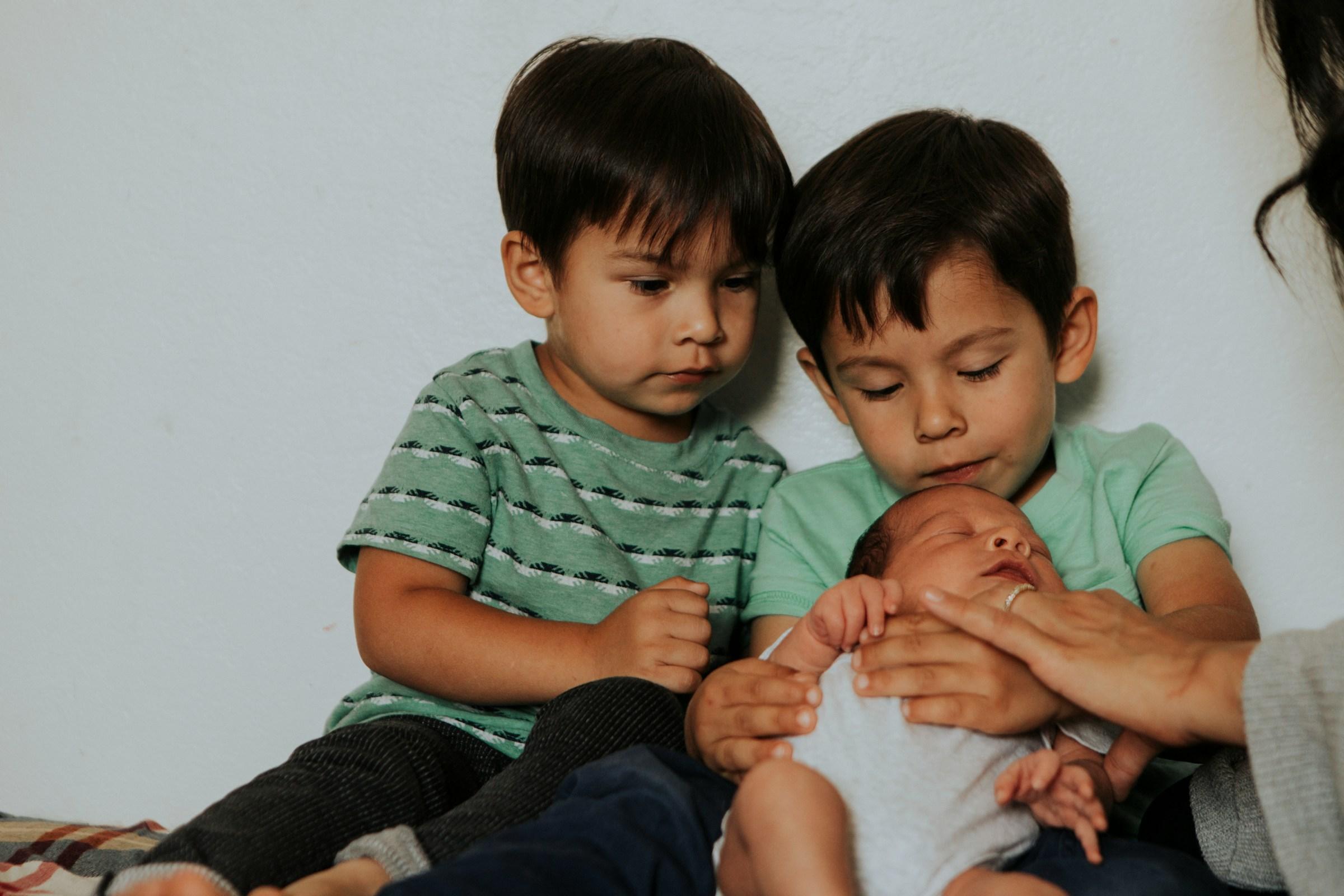Ask a Gen Z what their first phone was and you will probably hear about a hand me down smartphone with a cracked screen and dodgy charger. Ask a Gen Alpha kid and you might hear about the family iPad that everyone fights over. Ask a future Gen Beta child and the answer will likely be a small glowing rectangle that called them by name, tracked their sleep, and knew their favorite cartoon before they could spell it.
That is the quiet shift hiding inside the question of what sets Gen Beta apart from Gen Alpha and Gen Z. The difference is not only the apps they use or the slang they invent. It is the default setting of their entire world. For Gen Beta, intelligence will not just live in search bars and recommendation feeds. It will sit in toys, fridges, classrooms, and bedtime stories.
Gen Z grew up in the first true social media storm. Their adolescence was shaped by Tumblr confessionals, early YouTube oversharing, and the rise of Instagram aesthetics. They built the language of cancel culture, soft launches, finstas, and Notes app apologies. Being online felt like expansion. Every room suddenly had a bigger door.
Gen Alpha arrived when that expansion had already started to feel exhausting. Many of them were born into households where parents were already deleting Facebook, muting group chats, and talking about screen time limits. They learned to swipe before they could tie their shoes, but they also grew up with adults trying to negotiate boundaries with tablets and TikTok. Their digital life was fast and bright, but there was still a belief that you could step away from it for a while.
Gen Beta is different because they are the first group whose childhood will be shaped by systems that are always on, always learning, and rarely neutral. They will be the test group for AI nannies that answer their questions before parents even see the chat. Their faces will be in more datasets. Their classroom behavior will be logged in more dashboards. Their bedtime stories might come from large language models that rewrite the ending each night based on mood.
For Gen Z, algorithms arrived as a surprise guest. The feed changed, the timeline scrambled, and everyone complained that nothing felt chronological anymore. For Gen Beta, algorithmic life will be like gravity. Invisible, constant, rarely questioned. The question will not be whether an algorithm is present. It will be which one they are allowed to live with.
There is also the climate backdrop that separates Gen Beta from Gen Alpha and Gen Z. Gen Z grew up sharing infographics about wildfires and coral bleaching, organizing strikes, and talking about whether to have children at all. Gen Alpha is being raised in homes where reusable containers and metal straws are treated as normal, not radical. For Gen Beta, climate crisis will feel even more like infrastructure than event. Heat alerts, flood warnings, restrictions, and air quality maps will be part of everyday logistics, not occasional headlines.
This shifts their story from dream to triage. Gen Z could still imagine endless flights, cheap fashion hauls, and cities that expanded without limit. Gen Alpha is starting to hear about carbon footprints and conscious consumption, but the language still sounds like choice. Gen Beta will likely grow up inside more formal limits. Travel that is more restricted. Water that is more controlled. Food that is more expensive, more engineered, more debated. Their world will feel less infinite and more rationed.
You can already see a preview of this in the way parents talk about them. With Gen Z, the worry was that teenagers were oversharing online and ruining their job prospects. With Gen Alpha, the fear is that kids cannot focus because their attention span has been sliced into 15 second clips. For Gen Beta, the concern is drifting toward something else. It is about data trails that start at birth, digital footprints that cannot be undone, and childhoods that look like a long series of check boxes in an app backend owned by someone else.
Identity will also feel different for Gen Beta. Gen Z turned pronouns, labels, and aesthetics into a kind of open source project. They experimented publicly, posted their therapy, and created language that older generations struggled to pronounce. Gen Alpha is inheriting that vocabulary with slightly less shock and more normalcy. By the time Gen Beta finds their voice, the question might not be whether they have the right to define themselves. It might be who gets to record that definition first. A social app. A school portal. A government form that syncs to a parent dashboard.
This could create a generation that is more careful on the surface but more experimental in closed spaces. Think private group chats inside supposedly safe ecosystems. Think low key alt accounts buried under parental control settings. Where Gen Z performed their crises in public timelines, Gen Beta might reserve their most honest selves for smaller circles inside encrypted or semi private channels. Their rebellion may not look loud. It may look like selective visibility.
Work and money will also land differently for them. Gen Z entered a world of side hustles, creator economy dreams, and remote work fantasies that collided with burnout and unstable income. They watched crypto booms and busts happen in real time on their For You page. Gen Alpha is growing up in homes where money talks include subscription fatigue, rent anxiety, and constant price comparisons on shopping apps. Gen Beta may arrive at adulthood with fewer illusions about stability. They will remember parents working from small corners of crowded apartments, not shiny office towers. Corporate life will not look like safety. It will look like one of many imperfect options.
In that context, the classic generational narrative starts to look tired. Gen Z as the chaotic meme fluent activist. Gen Alpha as the tablet child. Gen Beta as the super digital AI native. The labels flatten more than they reveal. What really sets Gen Beta apart from Gen Alpha and Gen Z is their relationship to control. Gen Z fought for control of their narrative after systems blindsided them. Gen Alpha is being coached into control with timers, parental locks, and wellness reminders. Gen Beta will be measured, monitored, and nudged from the beginning. Their task will be to find autonomy inside a world that already feels pre scheduled.
This might show up in small rituals. Choosing paper notebooks even when every class is on a device. Preferring group calls over endless DMs. Curating smaller, slower communities rather than chasing virality. Where Gen Z chased reach, Gen Beta might chase reliability. A friend who replies. A platform that does not change its rules overnight. A job that pays on time. The aesthetics might still be neon, glitchy, or nostalgic. The underlying desire might be something quieter. Stability with a sense of agency.
Parents, brands, and schools will, of course, try to narrate this generation before it can narrate itself. You can already imagine the headlines. Tiny climate warriors. AI fluent preschoolers. Post screen trendsetters who want unplugged retreats before they hit puberty. Some of that will be true. Much of it will be projection from adults who are still processing their own digital hangovers. Gen Beta will live inside these expectations while also building subcultures that no marketing deck can predict.
There is also the question of memory. Gen Z remembers the before and after of many things. Before smartphones, before streaming, before constant crisis news. Gen Alpha has a faint before and a stronger after. Gen Beta will have far fewer befores. When everything has always been connected, and every surface is interactive, nostalgia shifts. It will not be for older technology. It may be for pockets of disconnection that felt rare. The summer when the internet was patchy. The one grandparent whose house had no smart speakers. The soccer field where no one filmed anything.
In the end, what sets Gen Beta apart from Gen Alpha and Gen Z is not only the technology curve. It is the emotional climate that rides alongside it. They are being born into a world that talks about limits more openly, automates more quietly, and tracks almost everything. Their challenge will not be learning how to use the tools. It will be learning how to feel like a person inside them.
Maybe that is where their real difference will show. Not in their slang or their dance trends, but in the boundaries they invent. The ways they learn to say no to an app that knows them too well. The decision to value a small, unrecorded moment over a perfect clip. The choice to be present even when every system around them is asking for more data, more engagement, more proof that they exist.
The story of Gen Beta has barely started. It will take years before we see clear patterns or confident essays about their defining traits. For now, they are the quiet background characters in photos of older siblings and exhausted parents. Yet their world is already being shaped in real time by every new policy, platform, and climate record. When they grow up and start telling their own story, the plot twist may be simple. They will be the first generation that never had to ask what the internet did to them. They will ask what they managed to do with it anyway.








.jpg&w=3840&q=75)





